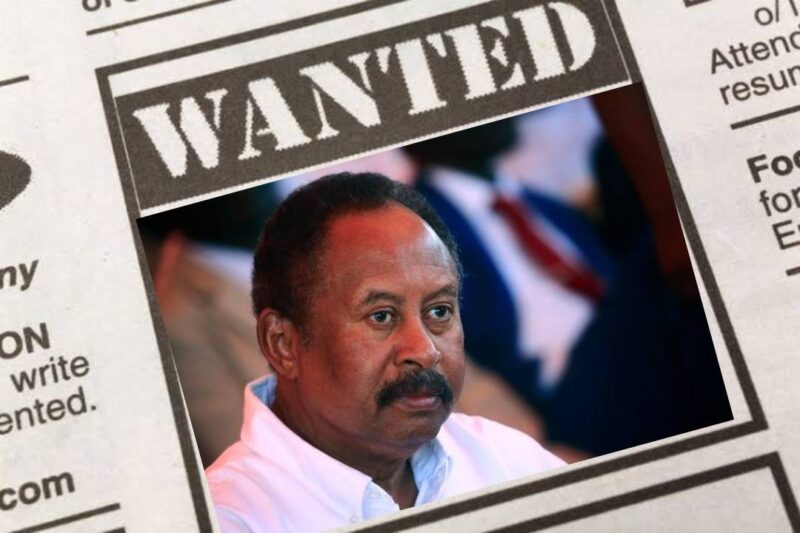As April marks the one-year anniversary of Sudan’s conflict, the two warlords; Abdel Fattah al-Burhan, the head of Sudan Army Forces (SAF) and Mohamed Hamdan Daglo, the leader of the Rapid Support Forces (RSF) have only shown more desires to prolong the devastating war in Sudan. In a shocking turn of events, General Burhan has taken Abdalla Hamdok, an ousted former Sudanese Prime Minister and the only high leader not killing to court on charges of high treason.
Hamdok has been traveling to various African and regional capitals with leaders of Sudanese civil forces to seek ways for ending the conflict. His recent trips follow the successful establishment of the Sudanese Coordination of Civil Democratic Forces (Taqaddum) which is a coalition of political parties, civil society, and professional groups, advocates for a peaceful end to the conflict. Earlier this year, they signed a declaration of principles with the RSF, calling for an end to hostilities and direct negotiations with the military. Taqaddum further aims at attaining a lasting and inclusive peace by mediating talks between conflicting factions, as well as instituting a democratic government that promotes the principles of Sudan’s December Revolution; freedom, peace, and justice.
These steps of Hamdok triggered strong condemnation from the SAF activists supporting the ongoing conflict, and accused Taqaddum of aligning with the RSF. In response, the Hamdok leadership clarified that they had also extended an invitation to General Burhan, but received no reply. After a long period of anticipation, the awaited response has finally emerged, manifesting as a legal persecution.
Sudanese state television reported that the Public Prosecution filed cases against Hamdok, the former civilian government prime minister, Tagadum leader and 15 others, including party leaders and journalists. The charges include incitement to war against the state, undermining the constitutional order, and crimes against humanity. These charges carry the death penalty under Sudanese law.
Observers have said that the legal proceedings are being swayed by political agendas within the Sudanese judiciary and state prosecution, led by elements linked to the Bashir regime. They instigated the conflict in order to suppress the Sudan Revolution that ended their thirty-year rule. The current war is being used as a means of seeking vengeance and attempting to regain power.
The decision of the public Prosecution came after two days of sharp criticism directed by Yasser Al-Atta, an assistant commander-in-chief of the SAF. Al-Atta who is accounted as the general of the SAF in favor of the Bashir regime expressed his dissatisfaction with the Public Prosecution and questioned the role of the Public Prosecutor in initiating legal actions against politicians who endorse the militia, the RSF.
The ongoing conflict in Sudan shows no signs of abating. It has already caused significant damage to the country’s infrastructure and has resulted in the displacement of millions of Sudanese people, leading to one of the most severe humanitarian crises worldwide. Additionally, the attempts made by civilian leaders to resolve the conflict are being hindered by punitive actions taken against them. The whole situation now raises the question of what possibilities Taqaddum, under the leadership of former PM Hamdok, has to bring the warring parties to the negotiation table, especially when their own lives are now wanted by the country’s public prosecution

